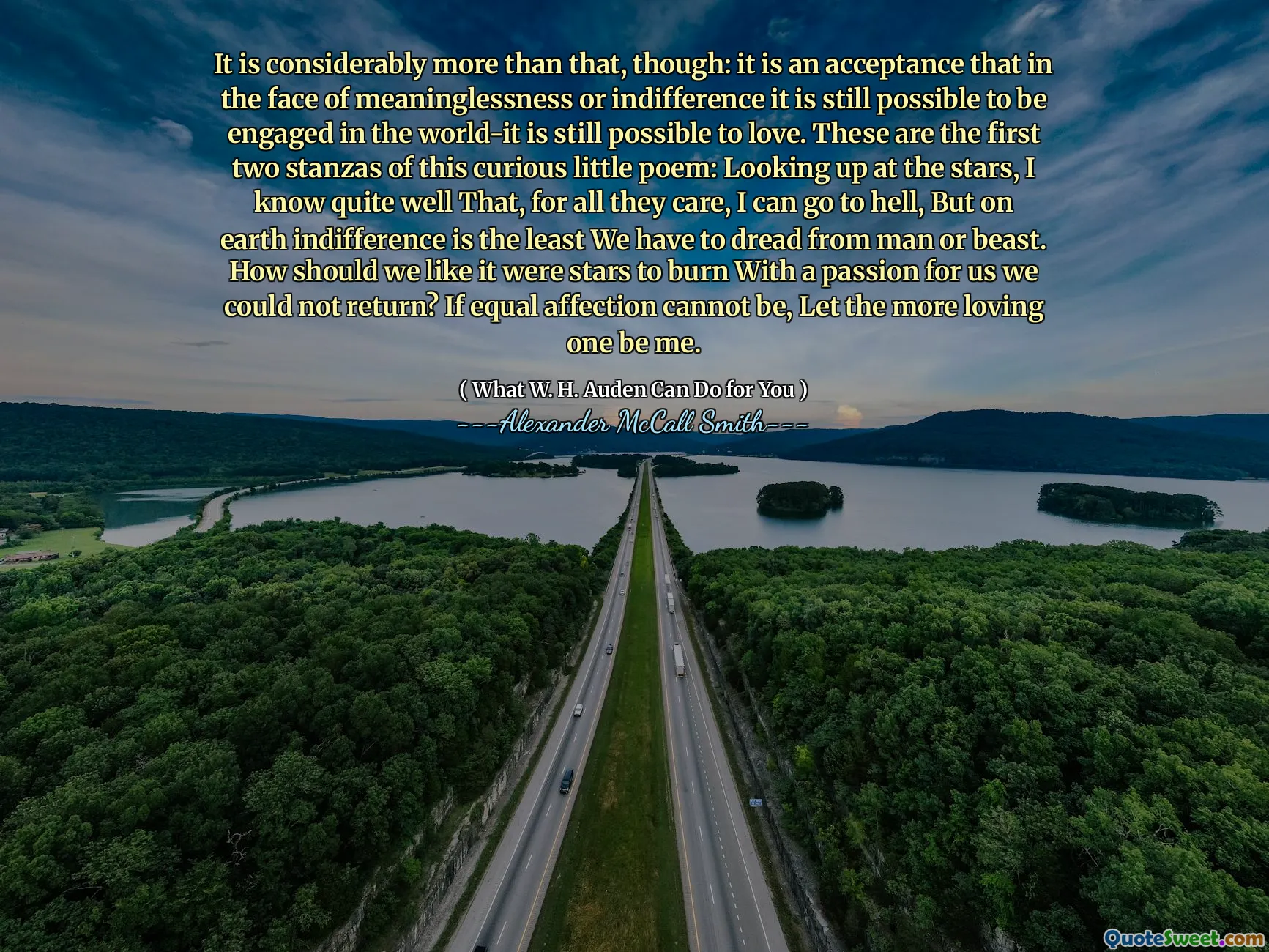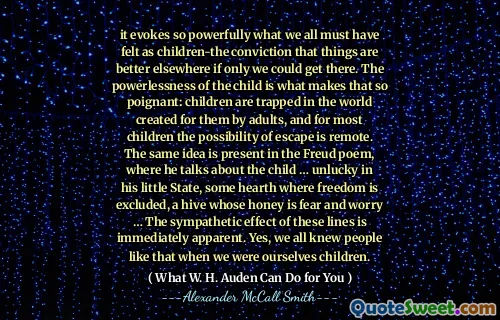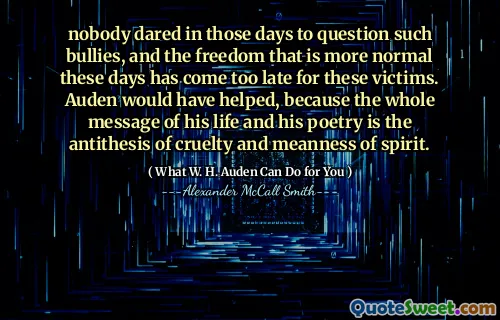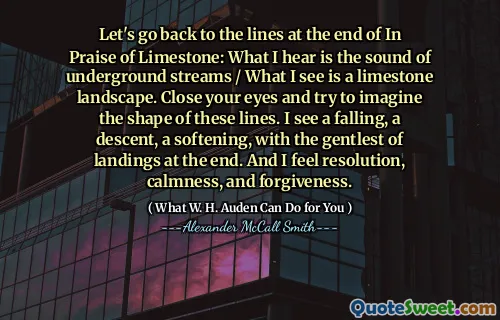
It is considerably more than that, though: it is an acceptance that in the face of meaninglessness or indifference it is still possible to be engaged in the world-it is still possible to love. These are the first two stanzas of this curious little poem: Looking up at the stars, I know quite well That, for all they care, I can go to hell, But on earth indifference is the least We have to dread from man or beast. How should we like it were stars to burn With a passion for us we could not return? If equal affection cannot be, Let the more loving one be me.
The quote reflects a profound acceptance of life’s inherent meaninglessness and indifference, suggesting that despite this reality, one can still actively engage with the world and experience love. The speaker acknowledges that the universe shows little concern for individual existence, portraying a stark contrast between celestial indifference and the affections shared among people. While stars may shine without feeling, human relationships allow for emotional depth and connection, even amidst life's uncertainties.
Auden’s poetic words explore the complexity of love, suggesting that unreturned affection can still be noble. The speaker contemplates the idea that if love cannot be mutual, then it is commendable for the more loving individual to take on the burden. This perspective emphasizes the value of love as a choice and a commitment, highlighting the beauty of giving oneself fully, regardless of the outcome, while acknowledging the reality of indifference that permeates existence.











